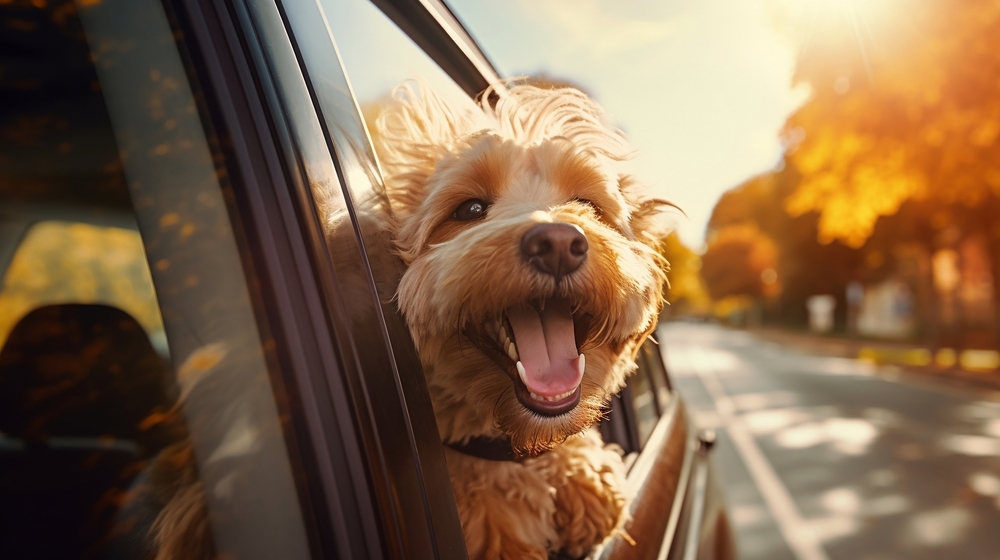
Car rides can be an exciting adventure for some dogs, while for others, they bring about stress and fear. If your dog trembles, whines, or refuses to get into the car, they may be experiencing car anxiety. Understanding what causes this fear can help you take the right steps to make travel a more comfortable experience for your pet.
Negative Associations
One of the most common reasons dogs develop anxiety around car rides is negative past experiences. If a dog associates car rides with unpleasant events—such as a trip to the veterinarian, a boarding facility, or even a traumatic accident—they may resist getting in the car or show signs of distress.
Motion Sickness
Just like humans, dogs can suffer from motion sickness. Puppies and younger dogs are more prone to this due to their underdeveloped inner ear balance. Symptoms of motion sickness in dogs include excessive drooling, whining, lip licking, and vomiting. If your dog has experienced motion sickness in the past, they may develop anxiety about future car rides.
Lack of Early Exposure
Dogs that are not introduced to car rides at an early age may become fearful when placed in a moving vehicle. If a puppy is only exposed to car travel for vet visits or stressful situations, they may associate the experience with fear rather than excitement.
Overstimulation
For some dogs, the sights, sounds, and sensations of a moving car can be overwhelming. Passing scenery, loud traffic noises, or the movement of the car itself may create an unsettling experience. This sensory overload can contribute to their anxiety.
Feeling Confined or Insecure
Some dogs dislike feeling restricted in a small space or struggle to find stability while the car is in motion. If they slide around or feel unsteady, they may become fearful of traveling in the car. Proper restraints, such as a travel crate, can help them feel more secure.
How to Help Your Dog Overcome Car Anxiety
If your dog struggles with car rides, there are several ways to help them become more comfortable:
• Start Slowly: Gradually introduce your dog to the car by letting them sit inside without the engine running. Offer treats and praise to create a positive association.
• Short, Positive Trips: Take short trips to fun destinations, like a park or a favorite walking trail, rather than just the vet or groomer.
• Comfortable Environment: Use a pet-safe car seat, crate, or harness to help your dog feel more secure during travel. Bringing along a favorite blanket or toy can also provide comfort.
• Consider Motion Sickness Treatments: If your dog struggles with motion sickness, consult our veterinarian about possible remedies, such as medication or natural supplements.
• Behavioral Training: Desensitization and counter-conditioning techniques can be effective in reducing anxiety.
Ensure Stress-Free Travel for Your Furry Companion
Understanding why your dog fears car rides is the first step in helping them feel more at ease during travel. Whether it’s due to past experiences, motion sickness, or a lack of familiarity, patience and positive reinforcement can go a long way in making car rides a stress-free experience.
If your dog struggles with car anxiety, schedule a consultation with Connecticut Veterinary Center to explore solutions tailored to your pet’s needs. From behavioral strategies to medical support, we’ll work with you to ensure stress-free travel for your furry companion. Visit our office in West Hartford, Kensington, or Windsor, Connecticut. Call (860) 233-8564, (860) 229-8960, or (860) 688-2026 to book an appointment today.







